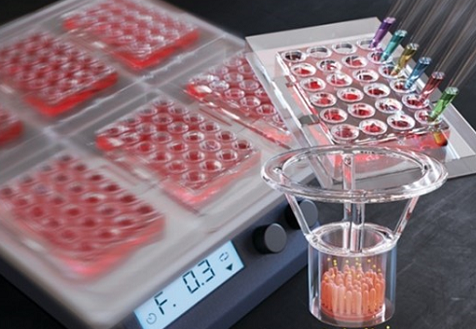
image credit- POSTECH
A research team at the Pohang University of Science and Technology (POSTECH) in South Korea has recently developed an innovative culture system that enables intestinal epithelial cells to form a three-dimensional villi microstructure simultaneously on a multi-well insert platform.
The intestinal epithelium of our body consists of a myriad of elongated villi microarchitectures which increase the total surface area of the inner wall for better absorption of digested nutrients. They also play an important role in intestinal homeostasis and in symbiosis with the intestinal microbiome.
In spite of the importance of the villi-like structure, when culturing intestinal epithelial cells in vitro, they form a monolayer – and not a villi-like structure – making it difficult to develop an artificial intestinal model resembling the structure and function of the actual intestine.
Researchers in South Korea have now developed a multi-culture system (BASIN1) that can reproduce the three-dimensional villi formation of human intestinal epithelial cells simultaneously.
“The great potential of the scalability of the in vitro intestinal model that is similar to the structure and function of an in vivo intestine is applicable as a drug evaluation model to develop new drugs”, said the researchers.




